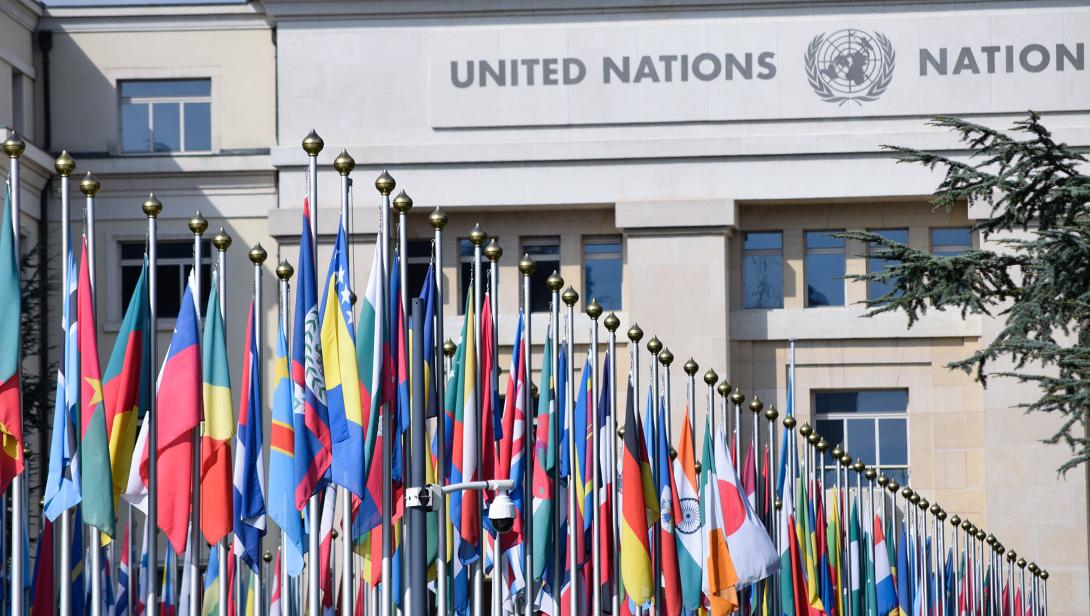International Relations Today
Every day, international relations touch our lives as global markets, the World Wide Web, and foreign travel stimulate a flood of people, products, and ideas across national borders.
We have been shaped by the immigration that brought us to our current homes, ennobled by our efforts to help others through foreign aid and humanitarian missions, enriched by our exposure to foreign foods, music, dress and language, and tantalized by the prospect of traveling, working, studying, and living abroad. While students of International Relations study the processes that promise such enormous benefits, they also confront those that threaten grave destruction. Fast flying, highly accurate nuclear weapons and simple acts of terrorism have breached the states' ability to protect its citizens as never before. Resource depletion, disease and pollution recognize no national boundaries. Businesses face dangerous foreign competition as well as attractive foreign markets. The reality of an interdependent world is brought home to us every day as national economies respond to debt and instability elsewhere.
Both the problems and the prospects are beyond the ability of any one state, no matter how powerful, to address alone. Truly global problems—planetary warming, economic instability, refugee relief, ethnic violence, international debt, and nuclear proliferation—require cooperation and coordination. Not an easy task in a world of contrasting cultures, differing political systems, and competitive nation states. How can we study these conflicts and understand the efforts to shape the character of transactions that cross national borders?
Today's world is the product of diverse global forces that are historical, political, economic, military, and social in nature. These same forces will shape the world we inhabit in the future—and our knowledge of them will determine our place within that world. It follows that a systematic understanding of these forces, often summarized by the term "world politics", must be interdisciplinary in approach. The mission of the Department of International Relations is to provide students with the opportunity to investigate these themes. Because the sovereign state is the principal agent in world politics, the study of International Relations emphasizes themes from political science, but students who major in IR will be exposed to knowledge from history, economics, sociology, anthropology, and philosophy as well. While IR courses address these areas, our majors are encouraged to take additional classes in these disciplines.
Subfields of International Relations
The study of international relations can be organized within either geographical or theoretical categories. The approach designated by the term "area studies" focuses upon the foreign policies of individual nations and the interaction patterns that result within geographic regions. Students of Europe, for example, study European political and economic systems, together with the language, culture, and society of that region. The questions that preoccupy scholars who approach International Relations more theoretically are too numerous to list here, but IR students can expect to acquire a detailed knowledge of its major branches: international security, international political economy, international law and organizations and, especially, the international relations theory that holds it all together.
- Students of international security strive to grasp the causes of war and the conditions of peace. They seek to understand regional, ethnic, and global conflicts by investigating the role of terrorism, ideological movements, ethnic groups, and the interaction of national foreign policies. They also try to prevent them by probing the dynamics of foreign policy decision making, diplomacy, arms control, and alliances.
- International political economy examines the political dimensions of trade, finance, and development, emphasizing the interaction between business (especially multinational corporations) and government. It also examines the linkages between economic problems (such as poverty and unemployment) and political factors (such as democracy) as well as the ties between domestic and foreign policy.
- Studying international organizations and law involves the role of international organizations such as the United Nations, the International Monetary Fund, and the World Bank as well as non-governmental organizations ranging from the church to the Red Cross.

